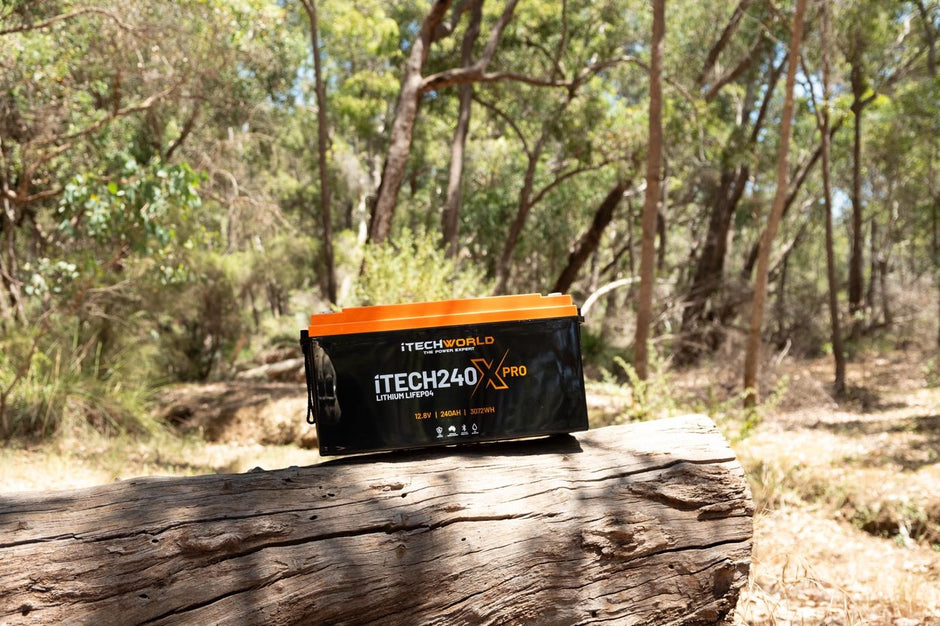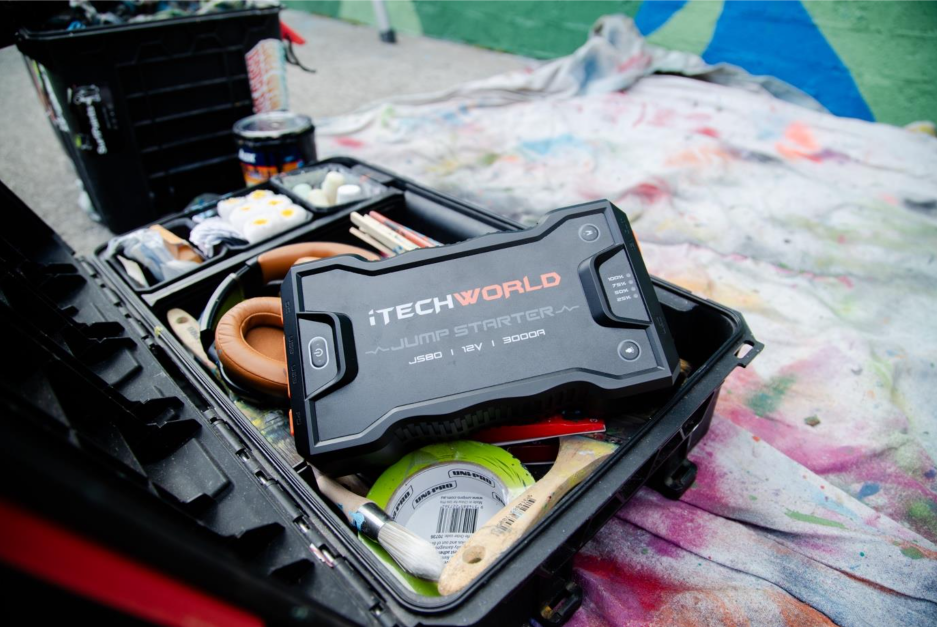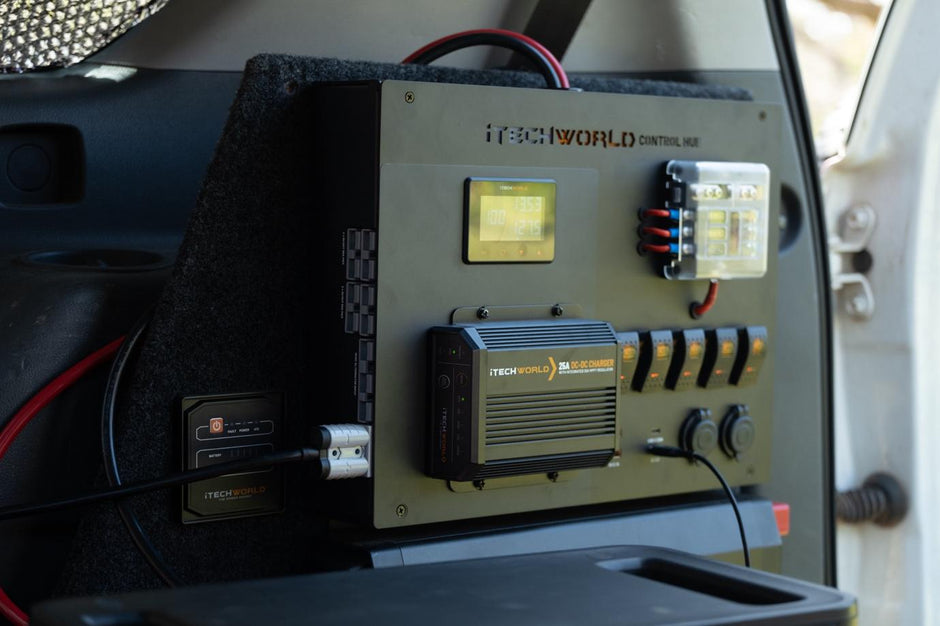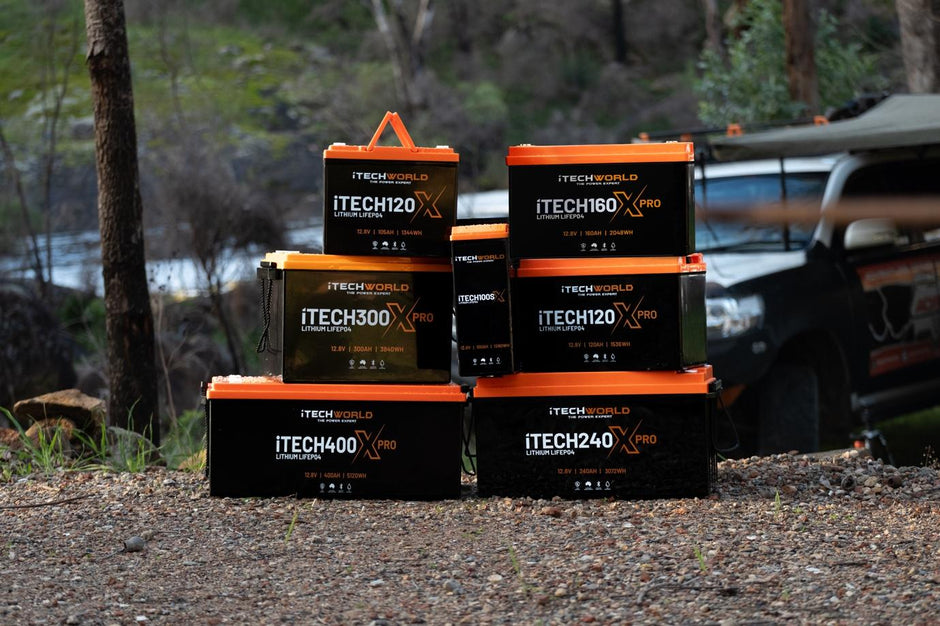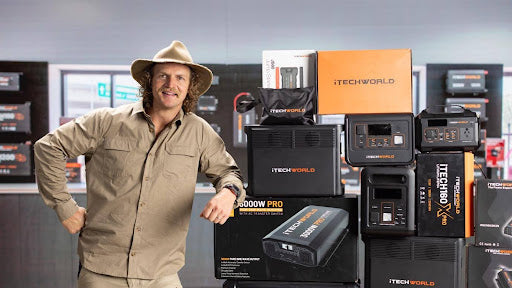Whether you’re camping for the weekend or doing a lap of Australia in your caravan, a reliable auxiliary battery is critical to staying connected and comfortable.
There are many options for charging your second battery, and using solar energy is a no-brainer.
In this blog post, we’ll look at the key differences between using a solar blanket vs solar panels to charge your auxiliary battery.
Solar blankets - the latest auxiliary battery charging technology

A solar blanket is an array of solar cells backed onto a lightweight folding blanket. It’s quick to set up and pack away into a compact carry bag for easy storage.
Pro tip: look for a solar blanket with foldout legs so the panels sit on an angle facing the sun. You can then easily move the blanket with the sun throughout the day to get the maximum amount of energy available.
A quality brand will include all the plug-and-play components you need to start charging your auxiliary battery, like a solar charge controller, extension lead and alligator clips.
The only drawback with a solar blanket is the inability to charge your battery while you’re driving, but it offers great flexibility because you don’t have to mount it permanently.
If a solar blanket sounds like the way to go for you, check out iTechworld’s anti-reflective, anti-scratch, UV-resistant Raptor Skin solar blankets. They’re available in 100W, 200W and 300W options and they can charge LiFepo4 (lithium), AGM, GEL, WET and lead acid batteries.
Here's Jordan from iTechworld explaining some of the benefits of a solar blanket:
Fixed solar panels - the tried and trusted battery charging workhorse

Fixed or hard frame solar panels are permanently mounted to your vehicle. Install them once, and they are out of the way. No further setup is needed.
If you own a caravan, installing multiple panels on the roof lets you take advantage of a larger surface area to draw in more solar energy.
Because PV (photovoltaic) solar technology has been around for decades, panels are cheaper than solar blankets.
Solar panels let you charge your secondary battery while you’re driving which is a great way to take advantage of travel time.
Potential drawbacks of solar panels are the amount of wiring needed during installation, and despite having some shade tolerance, you’ll need to park in direct sunlight to get the full benefit, but they are very much set-and-forget.
If you’re leaning towards fixed solar panels, for charging your secondary battery, check out iTechworld’s 150W and 200W models that are easily integrated into your electrical setup.
Watch Luke from As We Wander install the iTechworld 150W fixed solar panel:
Flexible solar panels - durable, bendable power on just about any surface

Flexible solar panels give you greater mounting flexibility on straight or curved surfaces because they are bendable up to 240°.
Don’t let the flexible, lightweight design fool you. Look for IP67 water and dust resistant panels and you can be confident they will withstand Australia’s harsh climate.
Securing flexible solar panels to your vehicle using pre-drilled holes makes installation a breeze. For a less-permanent, non-invasive option, simply use mounting tape instead.
Check out iTechworld’s Australian-designed range of flexible solar panels - they come in 150W and 200W options.
Here's Sam from iTechworld introducing the 200W flexible solar panel:
So, which is best, a solar blanket or solar panels for charging my second battery?
Solar blankets and solar panels have their advantages when it comes to charging an auxiliary battery.
Here's a brief summary:
Solar blankets
- Highly portable and easy to move.
- Can be adjusted throughout the day to maximize sunlight exposure and efficiency.
Fixed (hard frame) solar panels
-
Provide continuous charging while driving.
-
Cost-effective and permanently out of sight once installed, especially on caravan roofs.
Flexible solar panels
- Adaptable to curved surfaces, like vehicle roofs.
- Easy installation with options like mounting tape for a non-invasive setup.
For expert advice on choosing the right solution for your situation, speak to the power experts, iTechworld.
Call 08 9472 7200, send us an email or visit our Perth store at 291 Great Eastern Highway, Burswood, WA, 6100.


